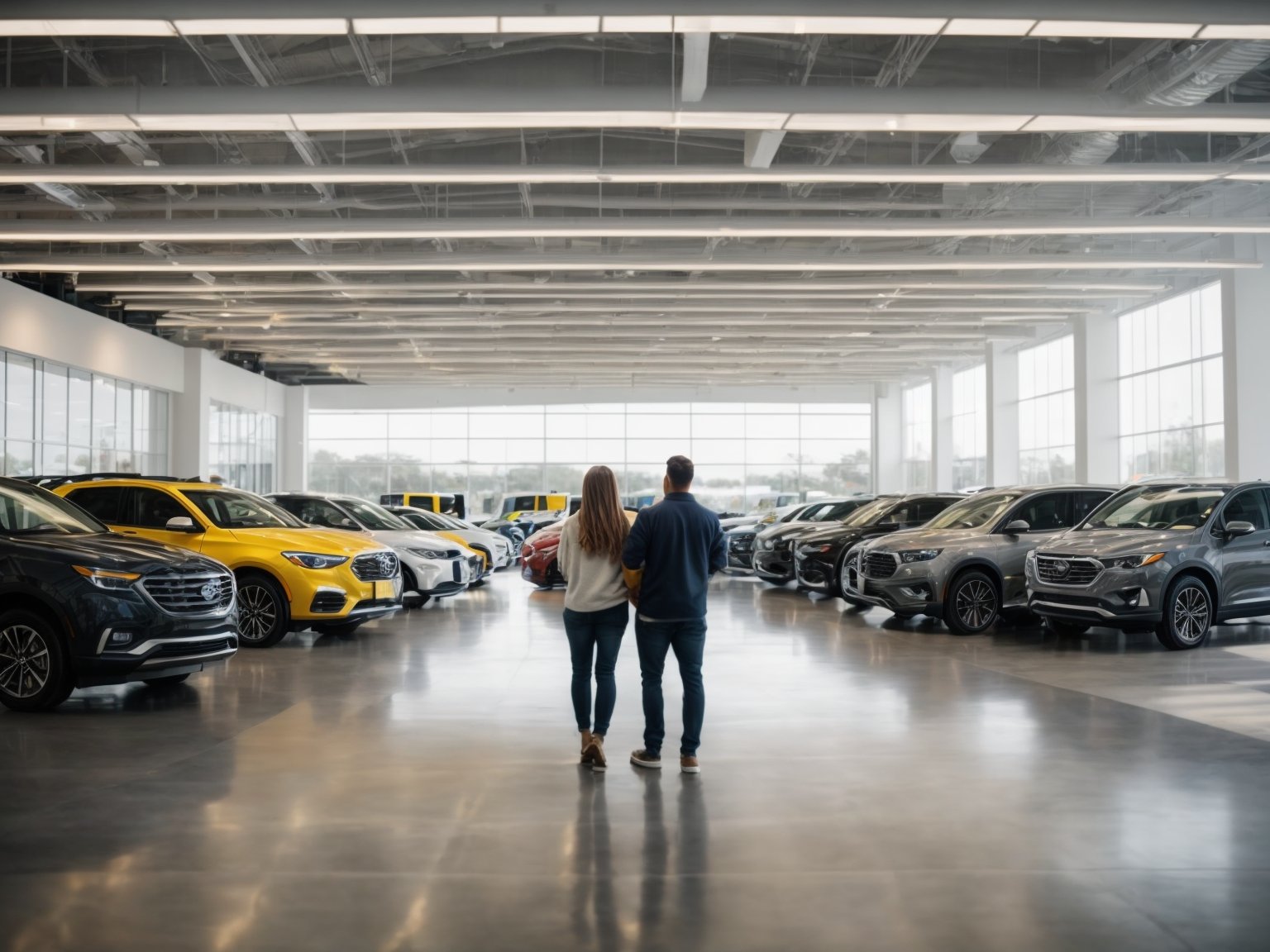Are you thinking about buying a car in 2023? It’s an important decision with new and used car prices still high after the pandemic. This guide will walk you through the pros and cons of buying new or used cars, how to shop for the best deal and key things to consider before taking the plunge into car ownership.
Should I Buy New or Used? Weighing the Pros and Cons

The first big question is whether to go new or used. There are good arguments on both sides:
New car pros:
- Latest features and technology
- Reliability of new parts
- Factory warranty provides peace of mind
- Wide selection of makes/models to choose from
New car cons:
- Expensive – even basic models can run $25k+
- Depreciate quickly in the first years
- Pay sales tax on the full purchase price
Used car pros:
- Significantly cheaper than new
- Certified pre-owned still have warranty coverage
- Let someone else take the depreciation hit
- Wider selection of body styles
Used car cons:
- No guarantee how previous owner maintained it
- Repair costs may start piling up due to age/mileage
- Limited inventory right now due to market conditions
As you can see, there are good arguments on both sides. Focus on your budget, how long you plan to own it, and the level of reliability you need to make the right choice for your situation.
How Much Can I Afford?
With high new car prices and rising interest rates, it’s important to consider your budget hard. Experts recommend your total monthly auto expenses stay below 10-15% of your take-home pay. This includes:
- Monthly loan or lease payment
- Insurance
- Gas
- Expected maintenance
Before falling in love with a car, run the numbers to see if it fits into your bigger financial picture. If not, adjusting expectations now beats being stuck with an expensive car you will regret later.
Should I Buy From a Dealership or a Private Seller?

The majority of people still purchase from a dealership. Benefits include better selection, the ability to test drive multiple models, financing assistance, and warranties on newer models. However, dealerships know how to upsell features and can be resistant to negotiating.
Buying from a private seller often saves money but comes with risks, too. The car may not have been maintained well or could have hidden issues. Get a mechanic’s inspection before purchase, verify service records, and ensure the title is clear.
Whichever route you choose, researching prices ahead of time and being willing to walk away from a bad deal are key. Cast a wide net until you find a good match at a fair price.
How Can I Get the Best Deal on a Car Right Now?
Even with high demand, there are still deals to be found in the current market if you leverage the right strategies:
- Consider leasing – Attractive monthly payments and option to swap cars in a few years
- Buy used 1-3 years old – Saves thousands over new and still has modern amenities
- Get pre-approved financing – Gives you negotiating leverage when you already have financing locked in
- Widen your search area – Cast a wider net to find good inventory other buyers may be missing
- Have quotes from other dealers – Use as leverage and for price comparison
- Negotiate out the door price – This includes taxes/fees for the full bottom line cost
- Shop at end of month/quarter – Salespeople have quotas to hit which gives you leverage
The current market requires more work for buyers, but deals can be had with persistence and leveraging the right techniques.
Key Questions to Ask Before Buying a Car
Beyond pricing, be sure you’ve considered these important questions before pulling the trigger:
- What features do I really need? – Don’t overbuy on a fancier trim than you require
- How’s the reliability for this model? – Research maintenance costs/issues online
- How long do I plan to own it? Consider depreciation over your ownership term
- What insurance coverage is right? – Compare quotes from multiple providers
- What are tax/registration fees? – Varies by state so do your homework
- Can I comfortably handle payments? – Especially as interest rates keep rising
- Is my trade-in offer fair? – Research its market value as a data point
- What financing terms can I qualify for? – Get pre-approved before negotiating
- Are there incentives I qualify for? – Discounts for college grads, military, etc.
Answering these questions will ensure no big surprises after an emotional buying decision. Take time to research to find the right car at the best all-in price for your needs.
Summing It All Up – Key Takeaways
Buying a car is always an exciting decision. As you navigate the process in the current market, keep these final tips in mind:
- Take a hard look at your budget before falling for a car
- Weigh new vs used based on pricing, reliability needs, tech features
- Getting pre-approved financing gives you leverage to negotiate
- Widen your search area and leverage online tools to find deals
- Make sure you understand the complete out-the-door price
- Thorough research helps you negotiate from a position of strength
With high prices and limited inventory, buying a car today requires more strategy than ever. But a smart purchase can still be made with the right diligence and persistence. Use this guide to improve your chances of landing the best car for your needs at a fair price. Just take your time and let logic guide you during such an emotional purchase. Good luck!
Q: What are the pros of buying a new car?
A: Buying a new car means you get the latest features, the assurance of no previous issues, and a warranty.
Q: What are the cons of buying a new car?
A: New cars depreciate quickly, and they tend to be more expensive compared to used cars.
Q: Should I buy a new or used car?
A: It depends on your budget and preference. Used cars are more affordable, while new cars offer the latest features and warranties.
Q: What factors should I consider when buying a used car?
A: When buying a used car, consider its mileage, maintenance history, and potential repair costs.
Q: How can I buy a car without getting a car loan?
A: You can buy a car without a loan by saving up and paying for it in cash or by trading in your old car to reduce the amount you need to finance.
Q: What are the benefits of buying a used vehicle?
A: Buying a used car often means lower initial cost, less depreciation, and potentially lower insurance rates.
Q: What are the disadvantages of buying a used vehicle?
A: Used cars may require more frequent maintenance and could have unknown issues from previous ownership.
Q: What steps should I take to get a car at a dealership?
A: When getting a car at a dealership, research the car’s value, get pre-approved for a loan, and inspect the vehicle before finalizing the purchase.
Q: How do I determine the value of a new car?
A: You can determine the value of a new car by researching its market price and comparing prices from different dealerships.
Q: What should I know about car insurance before buying a car?
A: Before buying a car, consider how the type of car, your driving record, and other factors can affect your insurance rates.










Leave a Reply